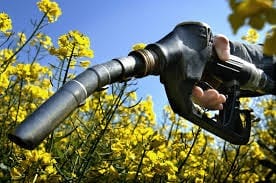Optimism over biofuels is tempered by concerns over their economic viability and their implications for socio-economic development, food security and environmental sustainability, the United Nations’s (UN) 2014 World Water Development Report.
According to the report, biofuels have been heavily debated due to concerns overtrade-offs with food security. The debate has mainly focused on first generation biofuels, namely ethanol and biodieselproduced from feedstock such as maize, sugarcane andpalm oil. Biofuels and food security The demand for agriculturalfeedstock for biofuels is the largest source of new demandfor agricultural production in decades, and it was a majorfactor behind the 2007−2008 spike in world commodityprices. It is estimated that biofuelsaccounted for about one-third of the maize priceincrease. However, this raises concerns about the implications thatglobal biofuel production may have on food security in developing countries. Biofuels and water When assessing the impact of biofuel production on water and food security, land isthe key factor for rainfed agriculture, while water is the key factor for irrigated agriculture.If bioenergy feedstock is produced on irrigated lands, thenthe potential impact of biofuels on water resources is of major concern, says the report. Biofuels use water for bothfeedstock production and processing stages. Consequently,biofuels produced fromirrigated crops can have much larger water requirements than fossil fuelresources(although fossil fuels can havemuch larger environmental impacts).
Although thewater footprint of second generation biofuels – such as those produced from non-edible crops, crop residue and algae– could be muchlower, production remains almost entirely at the pilotprojectlevel. Conclusions The report concludes that biofuel development needs to be considered inthe context of food security, energy needs, land availability,and other national priorities. “Biofuels are neither good norbad and are subject to the same constraints and challengesas the rest of the agricultural sector. What is essentialis that the biofuel options be viewed as an agricultureinvestment option that needs to be sustainable andsmallholder inclusive in order to target poverty reductionand rural development and to safeguard food security.” Read the report: http://www.unesco.org/new/en/natural-sciences/environment/water/wwap/wwdr/2014-water-and-energy/






